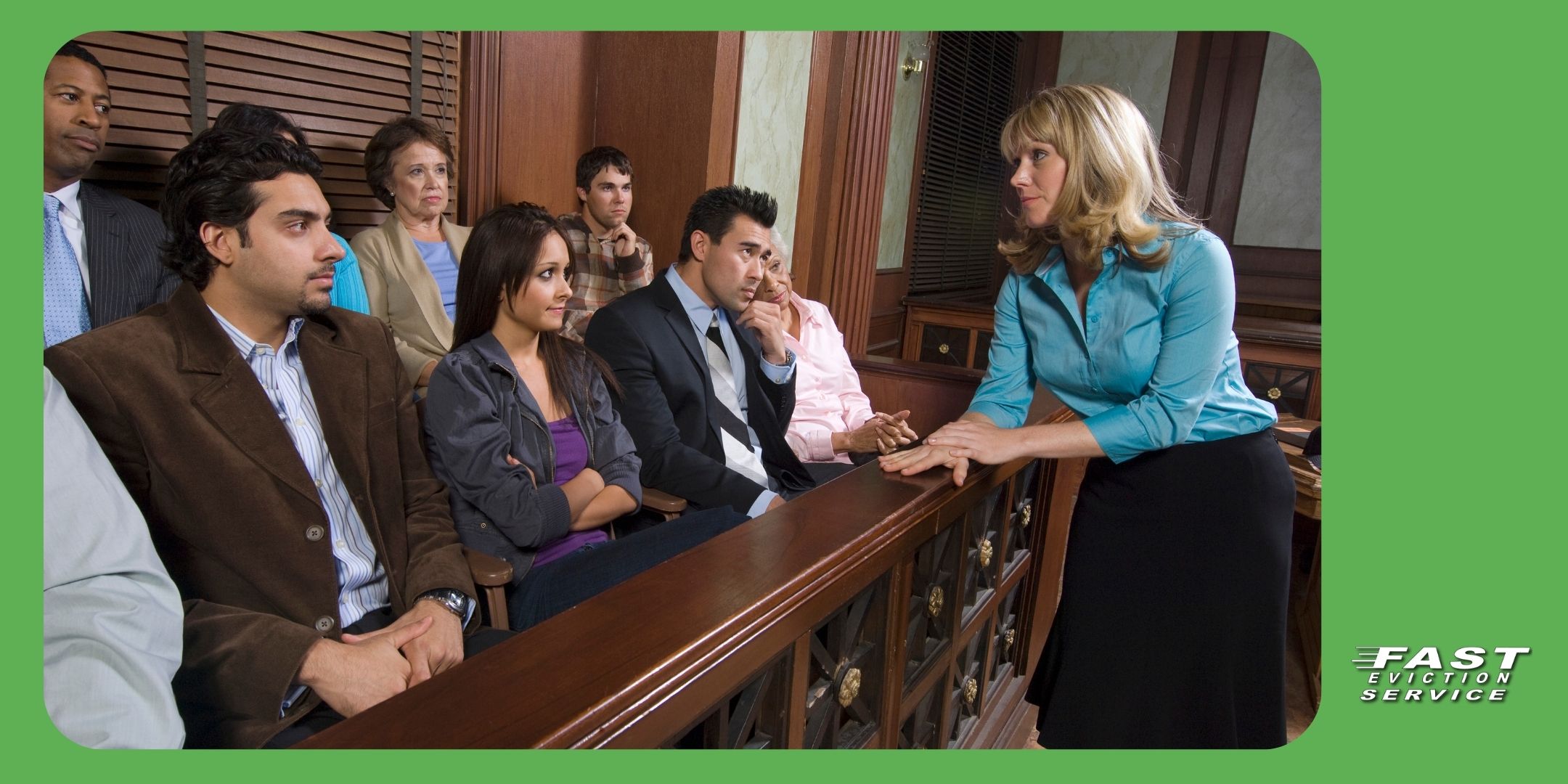Updated 12/20/24
As a landlord or property manager, the safety of your tenants is a top priority. When an injury occurs on your rental property, it’s not only a matter of concern for the person involved, but also for you as the property owner. An injury on rental property can lead to serious consequences, including costly lawsuits, reputational damage, and potential legal liabilities. Understanding how to handle such situations is crucial in ensuring both tenant safety and your protection as a property owner. In this article, we will explore the steps to take when an injury happens on your property, how to prevent them in the future, and the importance of knowing your rights and responsibilities to avoid liability due to landlord negligence.

By addressing these concerns, you’ll be in a stronger position to mitigate risks, protect yourself from lawsuits, and ensure that your rental properties remain safe and well-maintained for everyone involved.
Table of Contents
- Understanding Injury on Rental Property
- What to Do Immediately After an Injury Occurs
- Preventing Injuries: Best Practices for Landlords
- Landlord Negligence and Rental Owners Liability
- How to Handle a Lawsuit from a Tenant Injury
- Frequently Asked Questions
Understanding Injury on Rental Property
Injury on rental property refers to any incident where a tenant, guest, or worker is hurt while on your property. This can include slip and fall accidents, injuries from broken or faulty fixtures, or even incidents involving common areas like hallways or parking lots. Landlords are legally obligated to maintain their rental properties in a safe condition to prevent accidents that could lead to personal injury. In California, for example, landlords are required by law to keep rental properties in habitable condition, which includes maintaining common areas, ensuring structural integrity, and repairing anything that might pose a risk to tenants.
However, when an injury does happen, your response is crucial. Whether the injury is minor or severe, failing to address it properly can increase the likelihood of legal action against you, especially if the injury is linked to negligence on your part. This is where understanding your responsibilities as a rental owner can help you avoid the financial and legal consequences of a lawsuit.
What to Do Immediately After an Injury Occurs
If an injury occurs on your rental property, it’s essential to act quickly and responsibly. Here are the first steps to take:
- Ensure Immediate Medical Attention: First and foremost, make sure that the injured person receives appropriate medical care. If necessary, call emergency services to ensure that the injury is properly evaluated and treated.
- Document the Incident: As soon as the situation allows, gather information about the incident. This includes taking photos of the injury site, noting any hazardous conditions that might have contributed to the injury, and recording witness statements. Detailed documentation can be crucial in defending yourself if legal action is taken.
- Report to Insurance: Notify your insurance provider about the injury. Many rental owners have liability insurance that covers accidents and injuries on their property. It’s important to report the incident promptly so that your insurer can begin investigating the claim and determine your level of liability.
- Cooperate with Authorities: If there is an investigation into the injury, whether by local authorities or insurance investigators, be cooperative and provide all relevant documentation. This could include maintenance records, prior complaints about the area, and information about any safety measures already in place.
By responding quickly and effectively, you can help minimize the impact of the injury and demonstrate that you are taking your responsibilities seriously.
Preventing Injuries: Best Practices for Landlords
Injuries on rental property can often be prevented with proactive measures. As a property owner, it’s your responsibility to keep the property in good condition and address any potential hazards before they lead to accidents. Here are some key preventative measures:
- Regular Inspections and Maintenance: Conduct regular inspections of the property to check for hazards such as broken stairs, faulty lighting, uneven flooring, or damaged handrails. Make necessary repairs promptly, and keep a log of all maintenance work to show that you are taking proper care of the property.
- Adequate Lighting in Common Areas: Poor lighting in hallways, stairwells, parking lots, or entryways is a common cause of injuries. Installing adequate lighting in these areas can help prevent slip-and-fall accidents. Motion-activated lights are an energy-efficient solution for outdoor spaces.
- Tenant Communication: Keep open communication with tenants, encouraging them to report safety concerns as soon as they notice them. Providing tenants with clear instructions on how to report maintenance issues or hazards can help prevent accidents before they occur.
- Safety Features: In some cases, adding safety features such as non-slip mats in bathrooms, grab bars in showers, and fire extinguishers in common areas can protect tenants and workers. These additions show a proactive approach to safety, which can also help defend you in case of a lawsuit.
- Insurance Coverage: Make sure your insurance policy includes sufficient coverage for injuries that occur on the property. This may include general liability, worker’s compensation for service personnel, and even umbrella insurance to cover larger claims.
By staying on top of regular inspections and creating an open line of communication with your tenants, you can reduce the likelihood of injury and ensure that your rental property remains a safe environment.
Landlord Negligence and Rental Owners Liability
When an injury happens on your property, one of the first things that may be investigated is whether landlord negligence played a role. Landlord negligence occurs when a property owner fails to uphold their duty to maintain the property in a safe condition, leading to an injury. If it can be shown that you neglected essential maintenance or ignored known hazards, you may be held liable for the injury.
In California, a property owner has a duty to repair unsafe conditions within a reasonable time. This includes things like fixing broken windows, repairing leaks, and ensuring that common areas are safe for use. Failure to make necessary repairs could expose you to lawsuits, and you may be found responsible for any resulting injuries.
Rental owners liability also extends to injuries caused by faulty appliances, defective wiring, or poorly maintained exterior structures. While these conditions may not be immediately obvious, keeping up with regular maintenance inspections and addressing complaints promptly will help mitigate the risk of being held liable.
How to Handle a Lawsuit from a Tenant Injury
If an injury on your rental property leads to a lawsuit, your response will depend on the specifics of the case. It’s essential to have the proper documentation of the injury and repairs made, as well as evidence that you took all reasonable steps to prevent such accidents. Here’s what to do if you face a lawsuit:
- Consult with an Attorney: If you are sued for an injury, seek legal counsel immediately. An attorney with experience in landlord-tenant law can help you navigate the legal process and determine whether you have a solid defense against the claim.
- Provide Evidence: Work with your attorney to provide evidence that you maintained the property properly and acted promptly when the injury occurred. This can include repair records, maintenance logs, and documentation of any communication with tenants about the issue.
- Negotiate a Settlement: Many personal injury lawsuits are settled out of court. If the facts are in your favor, you may be able to negotiate a settlement with the injured party to avoid a lengthy legal process.
By being proactive and following legal procedures, you can protect yourself in the event of a lawsuit.
Frequently Asked Questions
What should I do if a tenant reports a potential safety hazard?
You should address the concern as quickly as possible. Perform a thorough inspection of the area and make necessary repairs. Document the steps you take and keep the tenant informed of the progress.
Can I be held responsible if an injury occurs in a common area?
Yes, as a landlord, you are responsible for maintaining safe common areas. If an injury occurs due to a failure to address a hazardous condition, you may be held liable for the incident.
How can I reduce my liability for injuries on the property?
Regular inspections, prompt maintenance, adequate lighting, and clear communication with tenants are essential for reducing liability. Having proper insurance coverage is also important in case an accident does occur.
Final Thoughts
By understanding how to handle an injury on rental property and taking steps to prevent accidents, you can protect both your tenants and your property. Stay vigilant, maintain open communication with tenants, and regularly inspect your property to reduce the risk of injury and the associated legal consequences.


